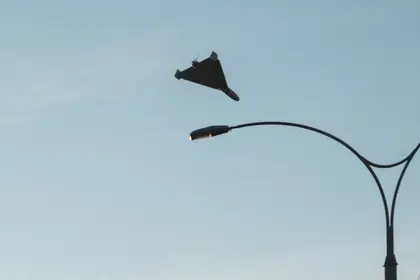On Monday the majority of the members of the German parliament withdrew its confidence in Chancellor Olaf Scholz, officially clearing the way for new elections on 23 February. Scholz will be running again as the top candidate of the SPD, but the leader of the opposition Friedrich Merz (CDU) is ahead in the polls. Europe’s press takes stock.
Hope for a better future
La Stampa (Italy) comments on the situation in Germany, where the head of government has just lost parliamentary backing:
JOIN US ON TELEGRAM
Follow our coverage of the war on the @Kyivpost_official.
“Regardless of the instability that is to be expected in the phase between the elections and the formation of a new government, the fall of Olaf Scholz is nevertheless a moment of relief for Europe. Currently, lame duck Germany – because this is the role the country has been playing for some time now – is being led by a lame duck. But at least we can hope for a better future. ... No one in Europe can afford a Germany like the one we have had until now.”
Unrepentant to the last
Zeit Online (Germany) has nothing good to say about Scholz’s conduct:
“The Social Democrat had already gained a reputation for obstinacy during the traffic light coalition period, and on Monday too, instead of taking responsibility himself he blamed the government’s collapse on other factors: his former coalition partners from the FDP. The difficult budget situation. The war in Ukraine. ... Especially in times when it’s becoming increasingly difficult to find a majority, a lack of self-criticism is the last thing you need. ... Olaf Scholz has not only damaged a government, but also the belief that it is possible to conduct pragmatic policies across political camps. ... Having seen his conduct on Monday there is nothing left to suggest that Olaf Scholz is the right man for the job.”

German Police Probe Drone Sightings Over Military Sites
Merz’s solutions outdated
Hospodářské noviny (Czech Republic) doubts that much would change with a CDU government:
“Merz is going into the election with slogans that hark back to those used by social democratic chancellor Gerhard Schröder at the start of the millennium. This was a time when the Germans cut the welfare state, when wages increased only very slowly and companies gained a competitive edge as a result. But simply repeating those steps won’t be enough now. ... Germany has no choice but to transition from the analogue to the digital age. ... It is not yet clear from the CDU/CSU programme that this will happen. Moreover, Merz will have to govern in a coalition with the Social Democrats or the Greens. The ability of such a cabinet to implement policies could be just as limited as that of the current one.”
Public spending debate is existential
El País (Spain) points to the significance of the dispute over the debt brake:
“Merz is showing a certain willingness to reach a consensus on the need to relax a culturally ingrained aversion to public deficit. ... The public spending debate is an existential issue in Germany, and it is spilling over into the EU. Two years ago, Scholz justified spending 100 billion euros on defence, the largest sum since the Second World War, by arguing that the war in Ukraine marked the dawn of a new age. ... The whole of Europe got the message. Now the Germans should follow suit.”
EU’s engine currently kaputt
The Guardian (United Kingdom) is deeply unsettled by the political situation in Germany and France:
“Political dysfunction in the EU’s two most powerful member states feels like a somewhat ominous way to close the year. From January, Mr Trump will doubtless be seeking to browbeat western allies on matters of economic and foreign policy. Right now, with Paris and Berlin plunged into introspection, it would be fair to say that Europe does not look fully ready for the challenge.”
An opportunity for Warsaw
Polityka (Poland) asks whether Poland stands to benefit from a tottering Germany:
“Whoever wins the next election, a new chancellor will have to bring order to this chaos. This means that there will be very little scope for a radical change of direction, for example with regard to Ukraine, likewise when it comes to the leadership vacuum in the EU. This could be a huge opportunity for Poland, which will take over the EU Council presidency in two weeks. So for the first time in recent European history, Berlin’s struggles could offer a shiny prospect for Warsaw.”
See the original here.
You can also highlight the text and press Ctrl + Enter










